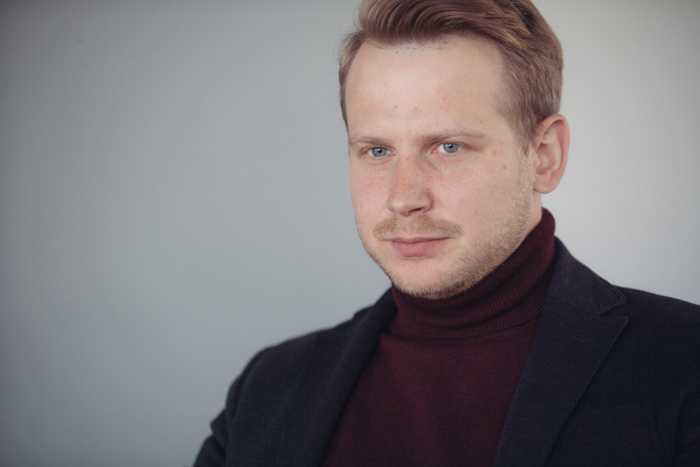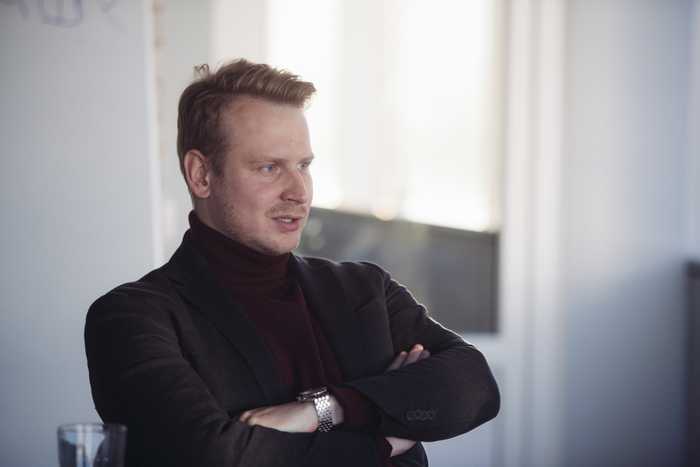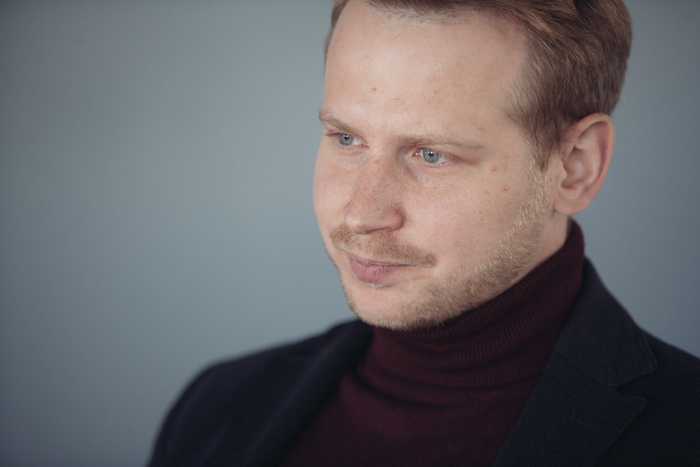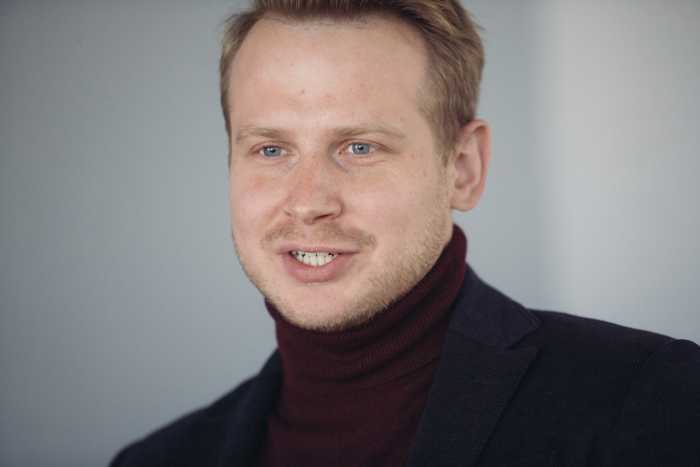Maxim Kamenkov (28) is a co-founder (together with Eugene Nevgen) of the Splitmetrics service, which allows increasing the conversion of mobile applications in the App Store and Google Play through A/B testing of icons, screenshots, and descriptions of products. In an interview for The Heroes, Maxim talks about how to start a business without rich parents, why an entrepreneur needs to cut the past off, and why a good hired employee should earn more than a business owner.
— You have a rather unusual biography for a startupper from Belarus. You were born in a small town, then you lived in an even smaller town for a long time. How did you find yourself in business and why did you need it?
— I didn’t have a family that would own a business, that’s true. I had a restlessness and a desire to do something. In many ways, this was a matter of chance. I started doing business as a techie, and talking about how to be a techie in business is a different story. My first experience with startups was when we were making MaeSens, and it so happened that the guys who had this idea were my roommates in the hostel. Since I already knew how to write code and earned money quite well at that time, they offered me to write code together. At that moment, my carefree life ended, and I stopped being a programmer who lives in greenhouse conditions and just writes code.
When I began my acquaintance with startups, the salary suddenly became three times smaller, sometimes it was slightly underpaid, I had to do overnight what people were doing for months.
That’s how I slowly came into the business and got involved in it. I met my current partner, Eugene Nevgen, we launched three and a half barely living projects after the hackathons we visited together. So, from our desire for innovation and the desire to try something new, Splitmetrics was born.
— How many unsuccessful projects did you have before it?
— MaeSens was successful, but much more could’ve been done from it. We didn’t have enough experience when we worked on this project. There were projects that I wouldn’t call unsuccessful, but we «killed» them at a very early moment when we realized that this, for example, isn’t very interesting for us and we don’t want to do this for the next few years. Sometimes we understood that implementing a project was too difficult. There were many ideas that we sifted out. In some, we reached the stage of the technical prototype, some we stopped doing after talking with «knowledgeable people». There were no projects on which I would lose a lot of money. But all those projects weren’t unsuccessful in the usual sense, they were tests that eventually led to the creation of Splitmetrics.
— At what point should you abandon a business idea to take on something else?
— It’s a philosophical question. There’s a cartoon about a treasure hunter digging an underground tunnel who abandons it just before he had almost reached the treasure hidden in the ground. Therefore, it’s not clear at what point to stop. There is no silver bullet that would help to understand when to stop or, on the contrary, to what point you need to struggle. You can sell anything or turn anything into a startup, but more important is how much time you are willing to spend on it in order to achieve the expected results.
It’s important not to give up your business because of some new idea that is popular right now. If you’re doing something, you should always keep focused. If you grab for everything, nothing will come of it — therefore, it’s especially harmful to take on trendy stuff — blockchains, ICO, and so on. There’s a simple poker strategy — don’t sit at a table if you don’t know the rules of the game.
Business is not always something trendy and sexy, sometimes it's dull business shit that PandaDoc or we do. You need to make simple solutions for certain business problems.
Some startuppers are expecting quick success, when they look, for example, at the creators of MSQRD, who brought this project to success in 4 months. But this is rather an anti-pattern of business. It’s foolish to expect that you’ll create a successful company in 4 months without a successful combination of circumstances. On average, it’s necessary to wait up to 7 years before the exit in the B2B sector. In the case of an IPO, you need to wait for decades. The creators of Dropbox exited in the eleventh year — despite the fact that their company is not medium-sized. It all depends on the senses of the founders. You should surrender only when obvious economic factors show you that you’re not making money on what you’re doing.
— How much money did you lose on MaeSens?
— If I had been working on this project for two years and could be earning about three thousand a month at that time as a programmer, then I could earn sixty thousand dollars. But I earned six times less.
— Who are your parents?
— I was raised without a father, my parents divorced when I was four, and I stayed with my mother. My mother is a teacher. She was able to put the right things in my head — that I needed to achieve everything on my own. At some point, she had done everything she could for me, and then I had to move on my own. This feeling helped a lot. When you don’t have support, you understand that you have to play the all-or-nothing game. So, you play it.
— What was her reaction when you told her that Splitmetrics attracted investments amounting in a six-digit number of dollars?
— Well, considering that my mom is far from business, she answered, «cool, everything works, so you are not closing the project yet?» She worries, she wants everything to be fine. This is probably the Soviet mentality of that generation. They went to school, graduated from university, got married, got a profession of an engineer — they made it in life. Probably there are more progressive people in that generation in Belarus, but for most of these people, it’s strange to leave everything behind and go nowhere — because this goes against the values of their generation. Of course, my mother had fears but I’ve lived apart from her since the age of 17, so I said that this is my life, and I’ll live it as I wish.
— And how did you react to the fact that a huge amount of money suddenly fell on you and you had to do something with it?
— I wouldn’t say that it’s huge. At the moment, when we were attracting money, I guess, we didn’t understand what to do with it. It seemed to us that we knew and understood everything but this was not at all the case. Understanding has appeared only now. We had a lot of ideas but we were actually just learning to do business.
There was a period when it seemed to us that fabulous life was about to begin, but nevertheless, we still had to do our job.
— The class of business celebrities is only taking shape in Belarus. Who would you already put on this list?
— Celebrities. What do you mean by this concept? A public person who has achieved some heights?
— Of course. Some Richard Branson, who owns a boat, flies a private jet and endlessly sells himself as a brand, being open to the press.
— This is, in many ways, a question of brand and values. You can achieve little but build a cool brand. I know people who have achieved a lot but at the same time they are quite modest, and most people don’t know about them simply because these businessmen have such values. These people don’t like publicity.
Yuri Gursky is on everyone’s lips now, probably more than anyone else. I wouldn’t say that he’s a very open person inclined to self-praise, but he’s well known for the things he does that speak for him. I think that the story of MSQRD also allows us to add Eugene Nevgen to the list of celebrity entrepreneurs. Yuri Melnichek (WANNABY, Bulba Ventures) and Nikita Mikado (PandaDoc) can also be on this list — considering how much they are investing in the PR of the Belarusian IT community.
— Do you belong to this category?
— I don’t think so.
— It sounds rather strange because you more and more often appear in ratings that consider you not only 30 under 30, but also one of the «most desired bachelors».
— I take it normally, it's just another reason to smile. I don't take it seriously. If you ask about the conversion of all this, well, once a girl wrote to me, «you’re a desired bachelor, let's meet up». That's all.
I go to clubs on weekends. There was a time when I could stay up all night partying but now it has all become more balanced. What does a person look for in life? Some look for fun and pleasure. For me, it’s interesting to build a company, to better understand how human relations work.
Human relations are the key thing in sales and in search for investments but, unfortunately, I won’t get this information in nightclubs. Therefore, I choose private events, conferences and clubs where I can meet people who have risen a few steps higher than me.
I read a lot of books now. In the past two years, I’ve read more than I’ve read in 10 years of study, excluding textbooks. Now it is trendy to practice meditation but for me, reading books is a way to meditate. After all the working information and emotional pressure that a person goes through every day, at some point comes a desire to just go to a suburban lake and just look at the water. Although sometimes in a good company of friends, of course, I can go out to a bar with good cocktails.
— When you were in school, were you a «nerd» or a «cool guy»?
— It used to be different, but I was rather in the middle — I was definitely not a nerd, but I didn’t hang out with the cool guys either. I like to joke that half of my schoolmates are already married, and the other half are already in jail.
— After you’ve started your own business, have you ever had the feeling that the past is pulling you back?
— Yes, there were mindsets that were imparted when I was brought up. Parents hammer into their children’s heads that the main value in life is a sense of stability. What is stability? When you have enough money and education, you work at a good job and so on. When you go to a startup, you have no money. You might already have an education or maybe you leave university for a startup. This is a job in which it’s never clear what will happen tomorrow. I had to work on changing those mindsets.
A person grows through crises. When his life values break down to such an extent that he changes his point of view on life. I had several turning points in my life.
— Could you tell more about them?
— The first turning point happened when I had no money after going to a startup. Before that I had a good job — I’m a technical person, I worked as a programmer, I earned good money. At first, I had a savings airbag, but at some point, I began to run out of money. I had a life, I got used to the comfort, and then, it seemed, everything was over. I wouldn’t say that this feeling breaks a person but you must somehow adapt to it. Today you sacrifice something for a long-term and justified plan.
There was a time when it seemed to me, for some reason, that I was smarter than everyone else, that everyone owes me something. But at some point, I had to get rid of this feeling — otherwise, it just destroys you as a person. After all, you realize that you're just acting like an asshole.
Most people in Belarus think in the same categories. They cry about how bad their jobs are and just wait for happiness to fall in their hands. Subordinates believe that their bosses are fools, and vice versa. To clean yourself from such prejudices you have to work on yourself. Do you have a bad job? It can always be changed. But there’s always a certain fear, through which it’s necessary to pass.
We have no sales institution. Sales are building relationships. You’re surrounded by customers, employees, and relatives. The most important thing is to be open to people. In Belarus, nobody teaches building up relations, which is why it is so difficult to build, for example, partnerships in business. People seek to implement ideas alone, they don’t want to discuss them with anyone, they don’t share knowledge or useful information with others. It’s always better to build a business with someone else because there is support, it is beneficial in the long run. Not to say about the art of self-presentation and knowing how to sell yourself.
— Should these things be taught in schools?
— Definitely! Learning to present yourself is very important. What is the meaning of education abroad? It’s about expressing your thoughts and learning analysis. It’s necessary to learn to think — to read a huge text and write a very brief summary. It’s important to learn how to communicate what you want and to understand what your interlocutor on the other end of the line wants.
All these simple truths are obvious but in order to really understand them, you have to break something in yourself — self-centeredness, unwillingness to change your life. At some point, I had what is called an existential crisis. I went to a psychologist, broke up with a girlfriend, fell out with all my friends. And at that very moment, I understood those simple truths that I needed to be open to people and learn to build relationships with them.
— Have you completely stopped communicating with your friends?
— I can’t say that we stopped communicating, it just started a different kind of communication.
— Do you regret it?
— No. What’s there to regret? I can’t change what’s already happened. But I’ve made useful conclusions from this situation.
— Did your work have to do something with that?
— Yes, my work was also involved. At that moment, I was working up to 16 hours every day.
— And what do you want as a businessman now?
— At some point, I thought I wanted to make a lot of money. Then I sat down and thought, why do I need money? If there was a Maslow's Pyramid for business, the money would be at its very foundation, it’s the «physical need» of business. It makes no sense to do something if it doesn’t provide you with a certain level of life. But after that, money no longer plays a special role — the need for self-realization and involvement in something more arise.
OK, I'll buy myself an apartment, buy a car, go travelling, and then what?
If money is the lowest level of needs in business, then the next one is building a mature company. I thought that, most likely, I would sell my current company at some point and start building a new one. But why start a new company if I can develop the one that already exists? The most important thing in my life now is to create something new. I have some understanding, even if it’s not quite mature, that I want to «grow» a company. For me, the process is important. After this statement, I sense criticism from those who are convinced that the result is more important than the process. But as long as it gets me high, lets me grow as a person and lets my team grow, as long as we have good results, this is what I want to develop and grow.
— What level of income do you need to become ready to rise a step higher from money? How much money do you need annually?
— I don’t need much. Let's just say, 10 thousand dollars a month is more than enough.
— 120 thousand a year?
— Yes.
— How much do you earn now?
— Less than that.
— How much?
— I’d rather not say.
— Why?
— I guess it’s unethical. I’m a modest person and I think that I don’t need to tell people how much I earn. I earn some money, a little higher than the average salary in Belarus. I can say for sure that my salary is not the highest in our company. This is a long game. I can easily pay myself 10 thousand dollars a month starting today. There are different opinions on this topic, but I think it is better to give five thousand for the company’s growth, to hire another programmer for this money, which will allow us to do something faster and earn much more.
I consider the money I spend on the team as an investment, not a cost.
The fact that I’m underpaying myself today is an investment in what I can give this company — more fuel to grow my business. Big money is at the exit.
— Which employee at Splitmetrics is now the most expensive in terms of monthly expenses?
— The developers, of course, even in Belarus. And, probably, the sales — some of them can earn on commission fees up to 50% more than I do. The man earned for the company and earned for himself.
— Was it difficult to accept the fact that employees will earn more money than you in a company you own?
— This is a common practice in most healthy startups. The company is my money. The founder gets some spare cash only when he sells his business or when his company starts earning like Salesforce and gets a couple of billions in its account. There’s an opinion that the business in which you are engaged 16 hours a day should bring you material gain and create «insurance reserves» for you. Another position is closer to me — you let the company grow and play «all-in», but you need balls of steel for this. Both approaches are working and are correct. The only difference is that one of the founders drives a Mercedes, and the other one rides an Uber, like me.
— Don’t you own a car?
— Sometimes I think about purchasing a car but I don’t have an ego to satisfy with such a purchase. Yes, the car will give me a certain freedom, but from the point of view of living in Minsk, I see more cons in owning a car than advantages. In most cases, I notice that purchasing a car is an element of status.
I believe that buying a car to promote your own brand is throwing money down the drain. It’s like buying advertising on Instagram to get followers in your personal profile.
— In a recent interview, you said that the startup fever is almost over. What did you mean?
— It must have been taken out of context. I probably see some recession because I rarely go to hackathons, I don’t write code at night and there are less ideological guys around me. Perhaps it all remains, I just don’t see it and don’t feel it. It seems to me that people have become more selective in their ideas. There are a few good startups but I wouldn’t say that there are as many people engaged in them as there used to be — many leave to do consulting. Good programmers go into this area to work with American companies through contracts because there they can earn good money. Perhaps people have become more conscious of new offers, so the number of startups has decreased but their quality increased. Projects that Gursky and Melnichek do are good examples.
— Is there any action in relation to employees or the company that you are ashamed of?
— A friend of mine recently said that I’m not a very strong adventurer. Perhaps this is partly true — I like to sensibly weigh my decisions. It’s bad for a startupper not to take risks.
— What are the three most critical mistakes you made as a founder?
— First of all, I started doing this business. Secondly, I was a little self-confident and selfish when I thought that business can be done alone. Finally, I would say that sometimes I wasn’t risky enough, I need to leave the comfort zone more often.
— Why do you think it was a mistake to start your own business?
— Because this business is quite hard, as it turned out. Every time I see new competitors, I don’t even pay attention. I see the path we have gone. I understand how much effort competitors need to apply to at least repeat our path.
I think there are many other things that would have been much easier for us to do. But at that moment of the past, we didn’t know that something could be done differently.
Today, it has become a competitive advantage for us, because a lot of data, expertise and analytics are needed here — all these things require a huge amount of time. We’ve already spent this time. But if I had the opportunity to go back in time and choose other solutions for some problems, I might have made other choices.
— Let's talk more about self-confidence and selfishness. How do you get rid of them?
— You need to go to knowledgeable and intelligent people and ask them to teach you to do something well. There are people who have achieved much more and know much more than you. It is these people who will help you grow ten times faster if you come to them with a request to teach you something instead of telling your stories about what you have achieved. I myself used to be a man who believed that he knew how to do business — but it was a mistake, do not repeat after me. Don't do that. Go, collaborate, ask for help. One is not a warrior in the field — and that's fine. In business, you should always look for partners. I'm talking about mentors, investors, people from partner companies and, last but not least, about co-founders.
— How do you understand that these people suit you?
— Look for a person who is one or two steps higher than you. He will understand your problems very well because he recently passed through those steps. I’m the CEO of Splitmetrics which employs 25 people. If I come up to the CEO of Salesforce where 10,000 people work, he will have nothing to talk to me about. They are thinking about how to colonize the Moon, and I will come to discuss my business model with them. It wouldn’t be productive.
It is worth looking for those who did something similar to your project or achieved similar but better results in your industry. And you should know in advance what you need from them. Remember that the answers you get depend on the questions you ask.
For me, a telling example is our mentor Nikita Mikado, for whom I once worked at PandaDoc. He went through all the stages that we face now.
— Should you be friends with competitors?
— I think you should.
— Why?
— Why not be friends? What are the disadvantages of being friends with them?
— That’s a question to you.
— The question of competition is a question about the approach to business. The correct approach is to avoid competition. If you go into a business that already has tough competition, you’ve already lost.
You will always have competitors, but it is always better to enter a market that is relatively free of competition.
Making friends with competitors is also necessary because you may have different views on market segmentation. For example, your competitor works with SME, and you work with the enterprise. You can transfer clients to each other — this creates the conditions for beneficial symbiosis.
Of course, there are different options, but in an environment where there’s competition, the partnership is the best alternative.
— Who is the toughest entrepreneur in Belarus and why?
— Can I name four people?
— No, I'm only interested in one person.
— I will name the best one in my opinion — not taking into account financial performance or vision issues. For me, it’s the man who helped me more than others — I mean Nikita Mikado. I think that in terms of the approach to entrepreneurship, he has the most correct view on how to build and grow companies. I myself adhere to this approach. Growing a company and making a company for sale is not the same thing. For example, MSQRD or AIMATTER are projects created for sale. Creating companies for sale is good, this is one of many approaches to business. In terms of financial benefits, this is undoubtedly a winning option. But from the point of view of how a business needs to be built, I prefer what Nikita does.





